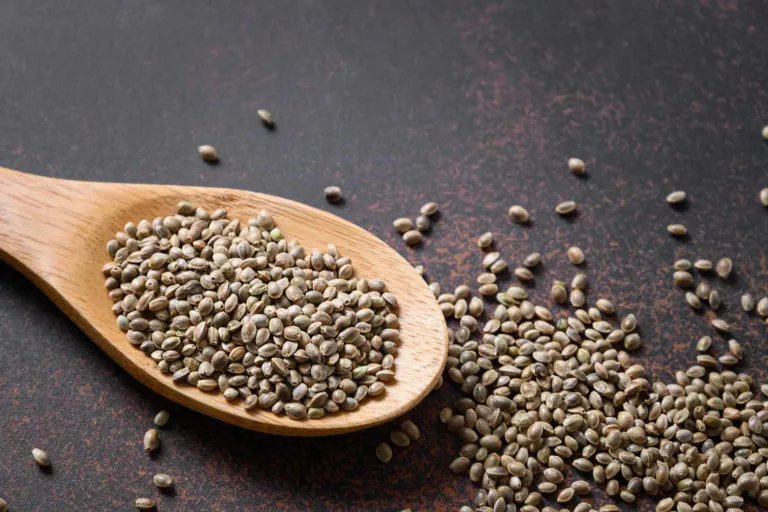Health Benefits of Granola
In the realm of nutrition, few foods pack as much of a wholesome punch as granola. This crunchy and delightful mix of oats, nuts, seeds, and dried fruits has become a beloved breakfast and snack option for health-conscious individuals worldwide. The spotlight on granola today is aimed at its nutritional value, with a specific focus on its high fiber content, vitamins, and minerals. In addition to discussing the numerous benefits of traditional granola, we’ll also explore the world of grain-free granola and how it can elevate your balanced diet. But first, let’s delve into why granola is such a powerhouse of nutrition.
Granola’s Fiber Richness
Granola stands out for its exceptionally high fiber content, making it a dietary superstar. Fiber is an essential component of a healthy diet as it aids in digestion, helps maintain a healthy weight, and plays a pivotal role in heart health. A typical serving of granola contains both soluble and insoluble fiber, which contribute to various health benefits.
Digestive Health: Soluble fiber in granola absorbs water and forms a gel-like substance in the digestive tract, which helps soften stools and promotes regular bowel movements. By doing so, digestive issues like constipation may be avoided.
Weight Management: The fiber in granola provides a feeling of fullness, reducing the likelihood of overeating. It also slows down the absorption of nutrients, leading to better appetite control and potentially aiding in weight management.
Heart Health: A diet rich in fiber, like that of granola, can lower LDL (bad) cholesterol levels, reducing the risk of heart disease. Additionally, it can aid in blood pressure control.
Blood Sugar Control: Fiber helps stabilize blood sugar levels, making it an excellent choice for individuals with diabetes or those at risk of developing the condition.
Gut Health: The insoluble fiber in granola acts as a prebiotic, nourishing the beneficial bacteria in the gut. A healthy gut microbiome is associated with various health benefits, including improved immunity and mental well-being.
Vitamins and Minerals in Granola
Granola is not just a one-trick pony with fiber; it also boasts an impressive array of vitamins and minerals. The exact nutrient profile may vary depending on the ingredients, but here are some common vitamins and minerals found in granola:
Vitamin E: Nuts and seeds in granola are rich in vitamin E, an antioxidant that helps protect cells from damage and supports healthy skin.
B Vitamins: Granola often contains B vitamins like niacin, riboflavin, and folate, which play crucial roles in energy production, metabolism, and overall well-being.
Iron: Some granolas contain iron, which is vital for carrying oxygen in the blood and preventing anemia.
Magnesium: Nuts and seeds are excellent sources of magnesium, which is essential for muscle and nerve function, bone health, and maintaining a steady heartbeat.
Zinc: Zinc, found in granola ingredients like nuts and seeds, is essential for immune system function and wound healing.
Phosphorus: This mineral, present in granola, is crucial for bone and teeth health, as well as energy metabolism.
Grain-Free Granola: A Modern Twist
While traditional granola is undeniably nutritious, the emergence of grain-free granola has brought even more versatility to the table. Grain-free granola is perfect for those with dietary restrictions like gluten intolerance or for those seeking a lower-carb option.
This newer variety typically replaces traditional oats with a mix of nuts, seeds, coconut flakes, and other grains like quinoa or buckwheat. The absence of grains doesn’t mean a lack of fiber; in fact, grain-free granola can be just as fiber-rich as its conventional counterpart.
The beauty of grain-free granola is that it maintains the core nutritional benefits of traditional granola while offering a different texture and flavor profile. It’s often sweetened with natural sweeteners like honey or maple syrup and can be customized with a variety of nuts and spices to suit your taste.
Why Granola is a Great Addition to a Balanced Diet
Now that we’ve explored the nutritional value of both traditional and grain-free granola let’s discuss why granola, in general, is an excellent addition to a balanced diet:
Sustained Energy: Granola’s combination of complex carbohydrates, healthy fats, and fiber provides a steady source of energy throughout the day, making it an ideal breakfast or snack option.
Versatile: Granola can be enjoyed in various ways. You can sprinkle it over yogurt, pair it with milk, or simply grab a handful as a quick snack.
Nutrient-Dense: It’s a convenient way to incorporate essential vitamins, minerals, and fiber into your diet without a lot of effort.
Customizable: You can tailor your granola to suit your dietary preferences. If you’re vegan, use plant-based ingredients. If you’re watching your sugar intake, choose a recipe with minimal added sweeteners.
Portable: Granola is a convenient on-the-go snack option, perfect for busy lifestyles.
Conclusion
Granola is a nutritional powerhouse that offers a wide range of health benefits due to its high fiber content, vitamins, and minerals. Whether you opt for the traditional oat-based variety or the grain-free alternative, granola is a versatile addition to a balanced diet. It supports digestive health, provides essential nutrients, and offers sustained energy throughout the day.
And for those looking to try something different, grain-free granola offers a unique twist on this beloved classic, maintaining its nutritional integrity while catering to various dietary preferences.
So, next time you reach for a bowl of cereal or a quick snack, consider making granola your go-to choice. It’s a tasty and nutritious way to fuel your body and keep your taste buds happy.







